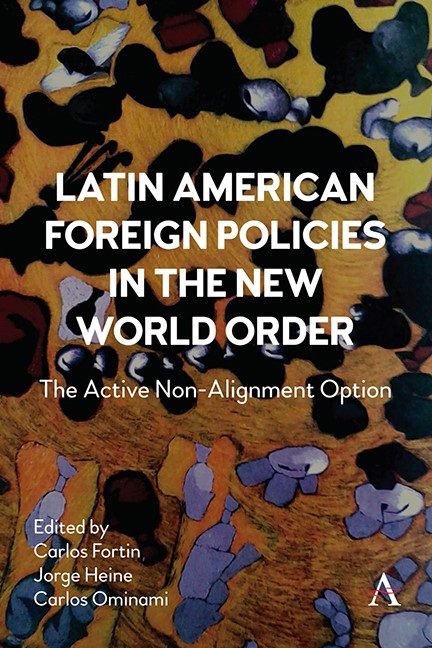Book contents
- Frontmatter
- Dedication
- Contents
- List of Tables and Figures
- Foreword
- Introduction: Active Non-Alignment (ANA) A Doctrine
- Part One The Emerging World Order
- Part Two Active Non-Alignment In The New Geopolitical Environment
- Part Three Active Non-Alignment in the New International Political Economy
- Part Four National Perspectives
- Conclusions—Implications of an Active Non-Alignment (ANA)
- Notes on Contributors
- Index
Chapter One - A World Order in Crisis
Published online by Cambridge University Press: 15 November 2023
- Frontmatter
- Dedication
- Contents
- List of Tables and Figures
- Foreword
- Introduction: Active Non-Alignment (ANA) A Doctrine
- Part One The Emerging World Order
- Part Two Active Non-Alignment In The New Geopolitical Environment
- Part Three Active Non-Alignment in the New International Political Economy
- Part Four National Perspectives
- Conclusions—Implications of an Active Non-Alignment (ANA)
- Notes on Contributors
- Index
Summary
At the close of the tragic year 2020, a long negotiation between China and the European Union (EU) was coming to an end. After seven years of arduous meetings about an investment protection treaty between the world’s second-largest economy and its largest market, the process was over. The agreement was of particular importance for Germany, the pro-tempore president of the EU, and whose former defense minister Ursula von der Leyen, chairs the European Commission (EC). The Chancellor of Germany Angela Merkel would not stand for re-election in the country’s general elections in 2021, so this treaty took on special meaning for her. German industry, particularly its automotive sector, is heavily dependent on the Chinese market, a country in which German brands—Volkswagen, Porsche, BMW, Audi, and Mercedes-Benz—are represented and produce cars on a large scale. Mercedes-Benz sells more vehicles in China than in Germany, just as General Motors sells more in China than in the United States. With 30 million cars manufactured a year, China is not only the largest automotive market but also the largest producer.
For Chinese president Xi Jinping, the treaty was key, and he instructed Chinese negotiators to do whatever it took to reach an agreement, including concessions on hot topics such as technology transfers. There was only one problem: this agreement was reached during the transition from the government of US president Donald Trump to that of the newly elected Joseph (Joe) Biden, and this agreement between the EU and China was not well regarded in the United States (Ewing and Myers 2020). Given the dispute between Washington and Beijing and its escalation from commercial to technological to diplomacy, the agreement sent the wrong signal. It would be added to the signing of the Regional Comprehensive Economic Partnership (RCEP), the largest trade agreement on the planet, on November 15, 2020, between China and 14 other countries in Asia and Australasia, as well as President Xi’s announcement at the Asia-Pacific Economic Cooperation (APEC) virtual summit in Kuala Lumpur that same month, of China’s renewed interest in entering the Comprehensive and Progressive Trans-Pacific Agreement (CPTPP) (Albertoni and Heine 2020). China seemed bent on continuing to sign trade and investment agreements, in contrast to an increasingly protectionist and isolationist United States.
- Type
- Chapter
- Information
- Latin American Foreign Policies in the New World OrderThe Active Non-Alignment Option, pp. 17 - 32Publisher: Anthem PressPrint publication year: 2023



